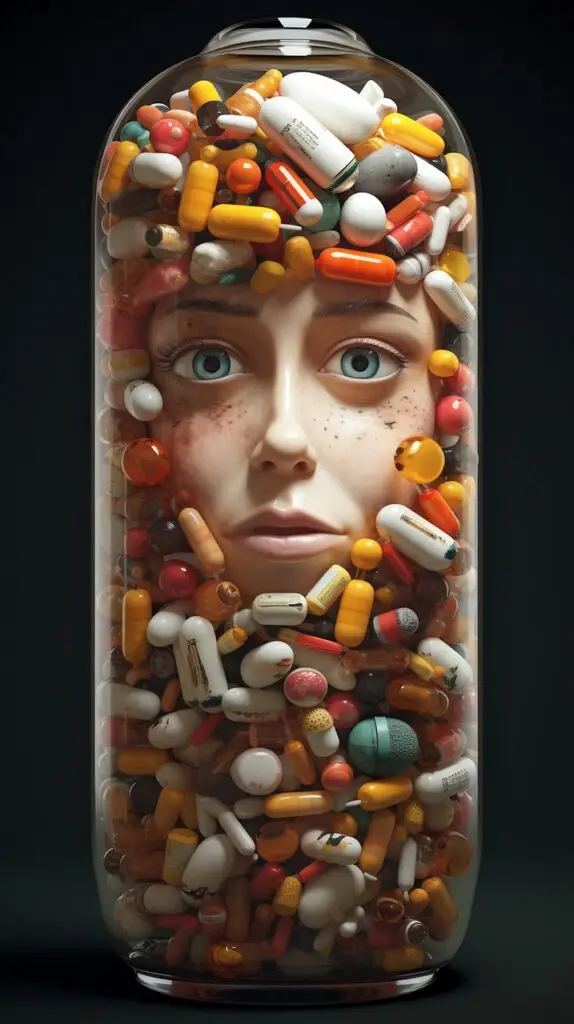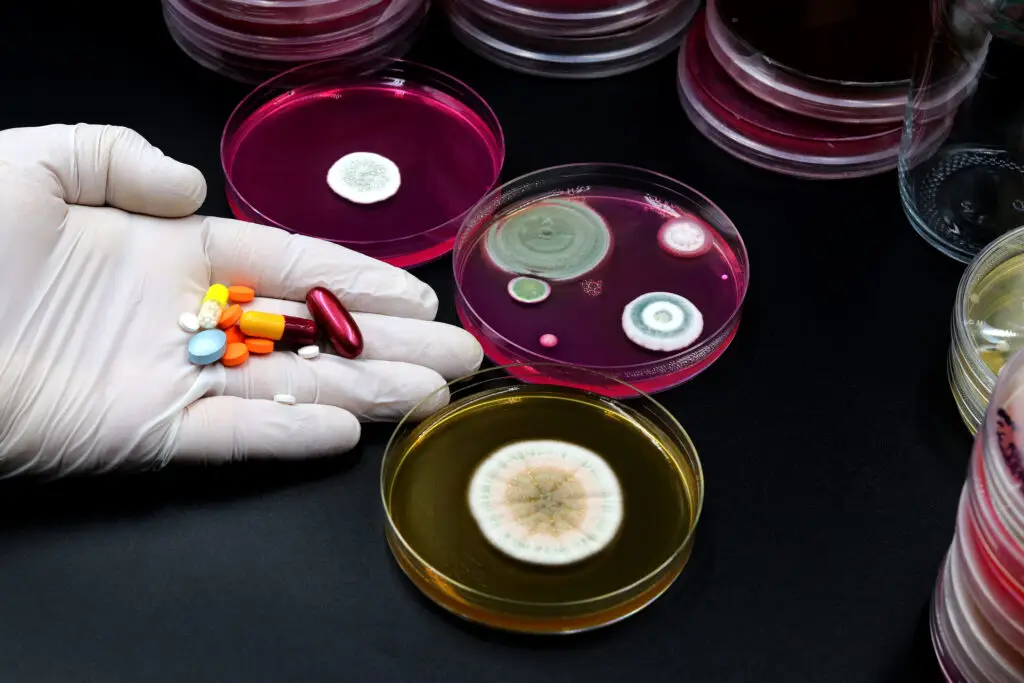Antimicrobial Resistance (AMR) is a silent pandemic that is extremely under reported and will soon be the #1 cause of death worldwide. AMR occurs when bacteria, fungi, viruses, and parasites mutate and no longer respond to drugs due to the overuse and misuse of antimicrobials in humans, animals, and plants.

There is no way of knowing the true number of deaths associated with antimicrobial resistance due to the lack of current healthcare reporting protocols. The World Health Organization (WHO) estimates that death stemming from antimicrobial resistance will reach 10 million by 2050 which is grossly underestimated.
Antibiotic resistance is a natural occurrence caused by mutations in bacterial genes. However, excessive and inappropriate use of antibiotics has accelerated the emergence and spread of antibiotic resistant bacteria. This pandemic affects everyone. No one is immune to AMR. Even if you have not taken many antibiotics in your life, antibiotic resistant bacteria can still enter your body and limit your treatment options significantly.

When bacteria are exposed to antibiotics, susceptible bacteria will be eliminated, but resistant bacteria will continue to grow, multiply, and share antibiotic resistant genes with other bacteria. The more bacteria are exposed to antibiotics, the more chances they have to change and become resistant. This can happen by using antibiotics when they are not needed, taking the wrong antibiotic for the infection, not taking them properly (missed doses or not completing the course), and through consumption of meat that is harboring resistant bacteria. Bacteria are gaining resistance much faster than new antibiotics can be developed, which has discouraged pharmaceutical companies from investing millions of dollars in creating new drugs.
Multidrug-resistant pathogens, known as Superbugs, no longer respond to standard antibiotic treatments, and in some cases, they no longer respond to any antibiotic treatments. Superbugs are a serious threat worldwide and will increase the overall mortality rate significantly if not addressed correctly soon. Anyone can be affected by Superbugs, but those who will suffer most are children, elderly, and people with immunodeficiencies.
Utilizing a more accurate diagnostic (NGS) and practicing antibiotic stewardship
Targeting the infection directly at the site with compounded topical anti-infectives
Bacteriophage (Phage) Therapy
Keeping antibiotics effective is everyone’s responsibility. Responsible use of antibiotics can help stop resistant bacteria from developing. Successful public awareness and implementing strict guidelines can aid in keeping antibiotics effective for the use of future generations, but it needs immediate action NOW. Everyone can play an important role in decreasing antibiotic resistance.
Prescribe antibiotics only when absolutely necessary, according to evidence-based guidelines, and by using an accurate diagnostic (NGS). Relying on empirical treatment, culture, and PCR has put us in the situation we are in today with the AMR pandemic. Also consider compounded topical anti-infectives when appropriate.
Discuss AMR with patients and the risks of taking antibiotics when not absolutely needed. Raise awareness of how antibiotics disrupt the gut microbiome resulting in further complications.
Explain to patients how to relieve symptoms of colds and flu without antibiotics, such as taking Vitamin C.
Advise patients why it is important that they comply with the entire treatment when they are prescribed antibiotics.
Bacteria spread faster than you think. They spread through touching contaminated surfaces then touching your face or the food you are preparing to eat. Regular handwashing with soap can help to break the cycle and prevent infections.
Please do not ask for antibiotic prescriptions unless they are absolutely needed. Antibiotics will not treat viral infections like a cold or the flu. All you are doing is contributing to the spread of AMR.
Ask your clinician what diagnostic they intend on using for your specimen sample.
Insist that an accurate diagnostic (NGS) is used to determine the cause of your infection so you can receive the right antibiotic treatment the first time.
Make sure to finish the antibiotic prescription as directed and take every dose you were prescribed; not doing so allows the bacteria causing your infection to survive, mutate, and become drug resistant.
Do not save or use “leftover” antibiotics. There should not be any remaining when taken responsibly.
Please keep in mind that each prescription of antibiotics you take will affect your gut microbiome, immune regulation, metabolic activities, and overall health. This is especially true for pregnant women, infants, and children since a reduced diversity and imbalanced gut microbiome are directly associated with a predisposition of diseases later in life. Also, when purchasing meat look for organic labels and those stating, “raised without antibiotics”. When animals are given antibiotics, they are at risk for developing antibiotic resistant bacteria. The resistant bacteria can be passed on to our bodies if the meat is not properly handled, cooked, and stored.